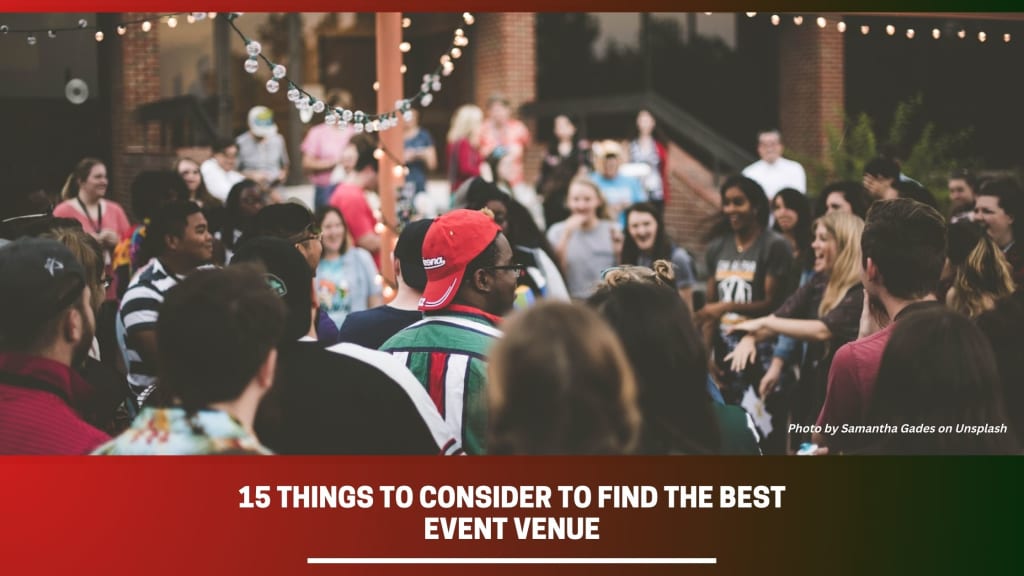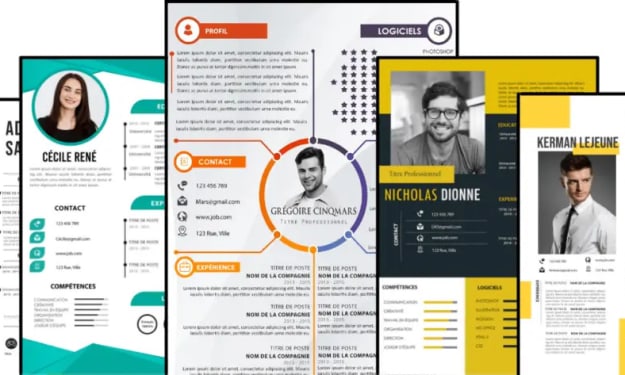15 Things to Consider to Find the Best Event Venue
When it comes to event experiences, attendees' expectations can be high, and choosing the right venue for your event can seem daunting. Fortunately, with the right guidelines, this task can be as simple as pie.

As the event planner, you will have many decisions to make, the most important of which will be selecting the ideal history museum event rental. When planning an in-person event, securing the venue is the most important decision because it affects the other major ones, such as the caterers you choose, how to enhance the attendees' experience, the date of the event, and so on. Furthermore, your event would not be possible without one.
When it comes to event experiences, attendees' expectations can be high, and choosing the right venue for your event can seem daunting. Fortunately, with the right guidelines, this task can be as simple as pie.
When should you start looking for a Venue?
You should ideally begin as soon as possible! Keep in mind that other event planners may be planning an event on the same date, so don't wait until half of the venues are fully booked. It's a good idea to book the venue 6 to 8 months ahead of time so you have enough time to plan other important things like creating brochures, booking catering, securing guest speakers, sponsors, and more. You should also think about using time-saving tools when planning.
15 Factors to Consider When Choosing an Event Venue
1. Location
When selecting a location for your in-person event, consider how convenient it will be for your attendees. If you're planning a local event, choose a location close to where your guests live and work. If some people will be traveling from out of town to attend your event, you should choose a location that is close to public transportation and where they will be staying. Remember that location is everything. If you choose a location that is inconvenient for your attendees, they may not attend your event! To enhance the experience for your attendees, you can create a personalized map that includes the location of your event, nearby public transportation, convenience stores, pharmacies, and other locations that you believe they should be aware of. Depending on your target audience, you might want to offer both a digitized and a paper version.
2. Budget
One of the most important aspects of event planning is determining the event's budget. Everything has a price, and the price of booking a venue can be quite high. You must ensure that your venue does not consume your entire budget, as there will be additional costs such as catering, supplies, entertainment, and so on. Fortunately, if you're flexible about the date of your event, you can have more leeway with the cost of your event venue. Planning your event as early as possible will provide you with more options and a better chance of obtaining a favorable reservation rate.
3. Parking
Because the vast majority of your guests will most likely arrive by car, parking is an important factor to consider. Is the parking lot large enough to accommodate everyone? Is there a valet service? When looking for a venue, choose one that has a parking lot. If you can't find one, make sure there are at least some nearby parking options for attendees. You can also reserve parking lots and have attendants pay for them when they park, or hire Lyft and Uber to serve your event.
4. Capacity and Size
Make a list of the guests you want to invite before you start looking for a venue for an event. Knowing how many people are expected to attend the event will assist you in selecting a venue that can accommodate the crowd. When it comes to venue size, you want the participants to feel at ease by providing enough space to sit and move around freely. The size is also determined by the atmosphere you want to create with your Atlanta art museum events. For example, if you want to create a cozy atmosphere, choose a venue that can accommodate everyone and is comfortable, but not too large.
5. Services and Amenities
With so many venues to choose from, you might feel a little overwhelmed. Aside from setting a budget to help you narrow down your options, another factor to consider is learning about the venue's services and amenities. If you intend to serve food at your event, look for a venue that can accommodate your needs and includes a kitchen, tables, chairs, linens, and other amenities. This could save you money and time by eliminating the need to find a caterer. Other services and amenities, such as access to AV equipment or setup/cleaning services, are advantageous when selecting a venue, especially if you're planning an event out of town and won't be able to bring your own audio-visual equipment.
6. Layout
When selecting an event venue, the layout is also an important factor to consider. If you have the opportunity, we recommend that you visit your favorite venues in person at least once. It will help you plan activities, amenities, seating and table arrangements, signage, and other details. If you are unable to visit the venue in person, request an illustrated floor plan of each venue you are considering for the event; this will assist you in making your decision. While reviewing them, try to visualize how you would set up the space in your mind, and don't forget to include wheelchair-accessible areas.
7. Ambiance & Mood
Is the venue's décor and architectural style appropriate for the ambiance and mood you want to create? Decorating a venue can quickly become costly, so choose a venue that already fits the atmosphere you want to create for the event to save money. The ambiance and mood will differ depending on the type of event you are planning. For example, if you are hosting a tradeshow, an industrial-style venue with plenty of open space would be ideal.
8. Insurance
Some establishments will refuse to do business with you unless you have insurance. As a result, it is best to get your general liability insurance provider to endorse your event as soon as possible to ensure that everything is in order!
9. Accessibility of your Event
Remember that some of your guests may need special access to the venue and amenities. Determine your guests' needs by knowing who they are--children, seniors, or people with special needs. Elevator-equipped and wheelchair-accessible venues are always preferred. You want attendees to feel cared for and to have the best possible experience!
10. Access to Wi-Fi
A museum venue rental with a strong Wi-Fi connection gives your valued guests, vendors, and speakers a better experience. Vendors can accept mobile payments, which will increase their sales, and your guests will be able to check their emails and post about the event on social media throughout the day! Inquire about the Wi-Fi speed at the venue; you want everything to run smoothly, especially if you're hosting a hybrid event.
11. Acoustics & Sound
You may not have considered it, but the way sound travels and good acoustics can provide a pleasurable experience for your guests--especially if you plan to play music or have guest speakers present during the event! Low-ceilinged venues create a cozy atmosphere, but if a large crowd is expected, there is a high risk of excessive loudness. The last thing you want is for guests to leave the event with a headache and a broken voice! Sound in a warehouse-style venue, on the other hand, frequently echoes, so keep this in mind when selecting a venue.
12. Flexibility on Event Date
As previously stated, the venue will consume a significant portion of your budget; however, if you are flexible on the event date, you may be able to obtain discounted pricing. Additionally, in addition to the venue, you will need to book caterers, vendors, and sponsors. As a result, it is critical to be flexible about the date of your event in case schedules do not align.
13. Technology
Incorporating technology into your event will increase its chances of success while also keeping your guests engaged due to a better user experience. Your technology requirements will vary depending on the type of event you are hosting, but once you have determined your requirements, check with the venue to ensure that they can provide you with what you require, such as AV equipment and Wi-Fi.
14. Food and Beverage Minimums
Some venues include food and beverages in their packages, but most charge a minimum number of people. Inquire with the venue about their food and beverage policy. It would not be cost effective to book a venue that provides food and beverage for a minimum of 300 guests if you are planning an event for a small group of people.
15. Additional Services
Even with the best event planning checklist, there may be things that you have overlooked. When looking for a venue, consider the additional services that are available. Some venues have interactive whiteboards in their conference rooms, while others have a room where people can relax and play pool. These services were not necessarily what you were looking for, but now that you know they are available, you might not want to pass them up!
About the Creator
Amit Kumar
Full-time thinker & part-time writer...






Comments
There are no comments for this story
Be the first to respond and start the conversation.